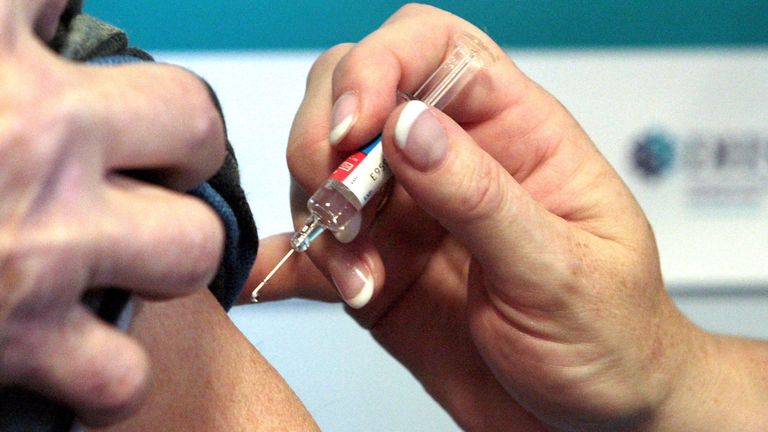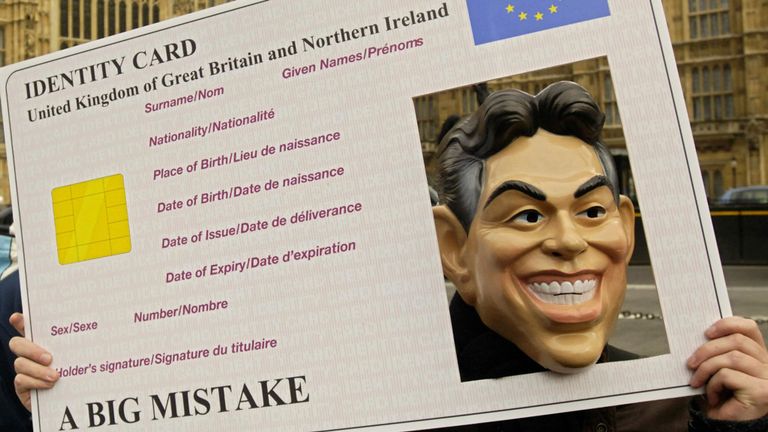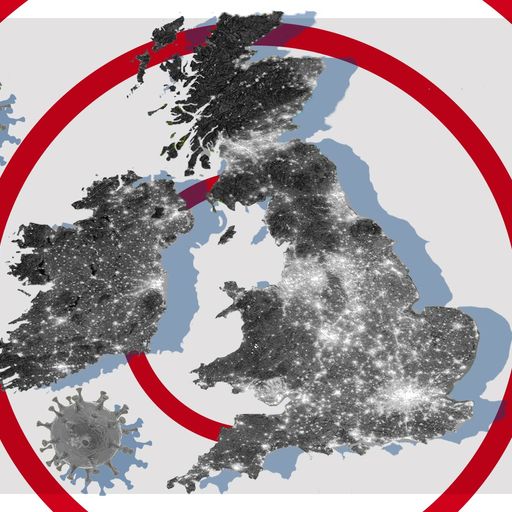Identity cards have been mandatory only twice in British history - during the two world wars - moments of enormous national emergency.
Should they be brought in again to deal with the
COVID-19
crisis?
The question is more pressing than you might think. Although experts are unsure if the UK's
coronavirus
curve is beginning to plateau, we will certainly hit the peak soon.
Epidemiologists are unequivocal: Actions during the downward slope and our exit strategy from the lockdown will be the difference between a second wave of infections or getting the economy moving again.

How to lift a lockdown: Why life may not return to normal for quite some time
One proposal to handle this return to economic activity involves the use of immunity certificates.
The UK's health secretary, Matt Hancock, has suggested "something like an immunity certificate or a wristband" in the future.
The premise is that those who have already contracted and overcome the virus are no longer at risk of spreading it and should be free to work, and would get some proof of this.
But the proposal is problematic.
The privileges which an immunity certification could bring might also introduce dangerous incentives, such as some people trying to contract the virus on purpose.

Dr Edgar Whitley, from the London School of Economics, told Sky News that significant questions remained about antibody testing and immunity.
It isn't completely clear whether antibodies mean a patient is permanently immune to the virus or just temporarily immune to its current form.
For example, mutations in the flu virus require people to get a new jab each year.
Even if this hurdle could be overcome, perhaps by temporary certifications, Dr Whitley said it would be vital to prevent potentially dangerous abuse of the system.
People could try to sell their certificate to someone who is not immune, as it could bring significant privileges such as exempting them from lockdown restrictions.

Image:New flu vaccines need to be developed each year
Dr Whitley said tying it to the person who had taken the test would be crucial, but that setting up a reliable identity checking system for the whole population could take time.
That is why biometric ID cards have been proposed.
However, the UK doesn't have an identity card system.
The Labour Party controversially attempted to introduce one in 2006, but it was fraught with challenges and the coalition government scrapped the proposal when it came to power in 2010.

Image:The public protested against Labour's ID card scheme
Theresa May, then the Home Secretary, repealed the legislation, telling parliament: "The national identity card scheme represents the worst of government.
"It is intrusive and bullying, ineffective and expensive. It is an assault on individual liberty which does not promise a greater good."
Introducing such a system today - even to help find a way through the devastating coronavirus crisis - would be likely to again face significant opposition.

Coronavirus UK tracker
How many cases are in your area – updated daily
"Does the pandemic require infringements on our civil liberties? Yes it does, I'm sitting at home at the moment," former Brexit secretary David Davis told Sky News.
"But there is no need for mandatory biometric ID cards. They are a solution in search of a problem, and they are deeply problematic themselves."
 简体中文
简体中文





